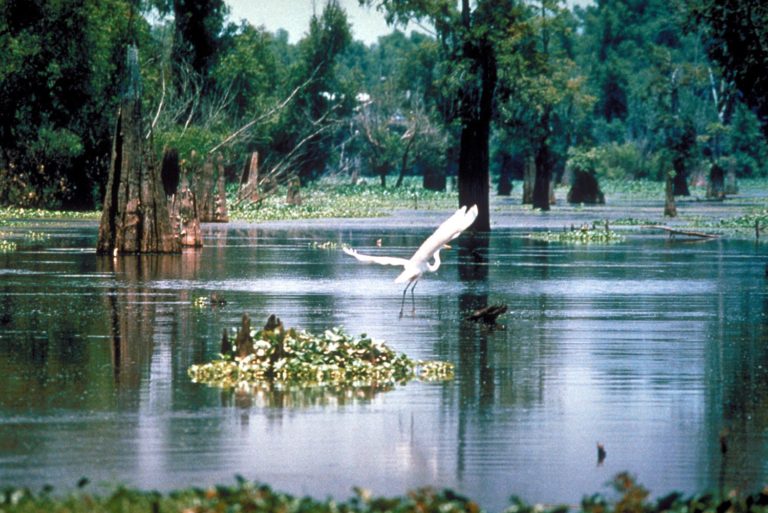Trump Administration Grants Permits to Extend DAPL Through Louisiana’s Atchafalaya Basin, Threatening Jobs and Water Quality
By: Waterkeeper Alliance

The New Orleans District of the United States Army Corps of Engineers today issued a permit authorizing Bayou Bridge Pipeline, a subsidiary of Energy Transfer Partners, to construct a 162-mile crude oil pipeline through irreplaceable wetlands, communities, and farms stretching across Louisiana. The pipeline is the final leg of a cross-country mega-pipeline that connects the controversial Dakota Access Pipeline, originating in the Bakken oil fields of North Dakota, to refineries and export terminals in Louisiana.
The controversial pipeline has been vigorously opposed by a broad coalition that includes Atchafalaya Basin crawfishers and conservation organizations. The groups have asked for a rigorous review of environmental risks as well as efforts to restore environmental damage from past pipelines in the Basin.
“The Atchafalaya Basin has sustained my family’s crawfishing business for generations,” said Jody Meche, President of Louisiana Crawfish Producers’ Association—West. “But our way of life is under threat from irresponsible oil development, which has left whole parts of the Basin toxic for crawfishing. Until we resolve these legacy problems of irresponsible development, we’re saying no to a new pipeline through the Atchafalaya.”
The Bayou Bridge Pipeline is the controversial southern leg of the Dakota Access Pipeline, this portion jointly owned by Energy Transfer Partners (ETP), Sunoco and Phillips 66. The current pipeline runs from North Dakota to Patonka Illinois, then down to Lake Charles, Louisiana. This new leg would extend through eleven Louisiana parishes to the terminus in St. James. Some opposition groups pleaded with regulators to restore the areas in the Atchafalaya Basin already severely damaged by pipelines before considering yet another pipeline that will ensure further wetlands loss. ETP has a strong history of violations, including in the Atchafalaya Basin.
The Atchafalaya Basin is the largest wetland and swamp in the United States and is the main floodway for the Mississippi River. “The Basin is one of the nation’s ecological crown jewels,” said Dean Wilson, Executive Director of Atchafalaya Basinkeeper, which works to protect the Basin’s unique environment and wildlife habitat. “The Army Corps is supposed to protect its water quality but instead has worked hand-in-glove with the oil industry to treat it as a sacrifice zone for irresponsible oil development. We won’t tolerate it any longer.”
Federal law requires a full environmental analysis, and consideration of alternatives, prior to authorizing actions that have “significant” environmental impacts. Even though studies reveal that crude oil pipelines in Louisiana leak regularly and gravely disrupt water flows and wildlife habitat, the Army Corps determined that the pipeline did not have significant impacts, qualifying it for streamlined permitting. The organizations vowed legal action if the Corps does not reverse this unlawful decision.
“Energy Transfer Partners has a deplorable record of accidents and spills, with 329 incidents since 2006— why would we allow such an irresponsible company to build yet another pipeline in a place of incalculable value?” said Larissa Liebmann, staff attorney for Waterkeeper Alliance.
“The company is already out of compliance for their Florida Gas Transmission pipeline that dams the waterways of the Atchafalaya. ETP promises more of the same—we can’t afford to forsake our waterways and our local economies for an out-of-state company that provides hardly any jobs or economic benefit to the residents of Louisiana,” said Cyn Sarthou, executive director of Gulf Restoration Network.
Links:
The U.S. Army Corps Decision can be found here
Hear from communities impacted by the pipeline here
Photo Source: U.S. Army Corps of Engineers Digital Visual Library